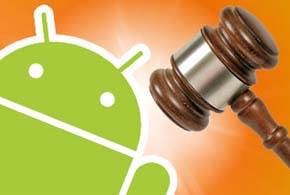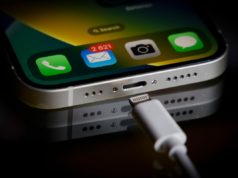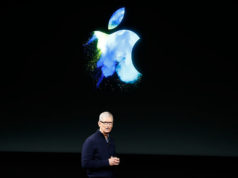In a blog post, Google Senior Vice President and General Counsel Kent Walker characterized the EU complaints against the company as unfounded and not based on market realities.
If Google ever ends up paying a fine to the European Commission (EC) for on it’s complaint the company engages in anti-competitive practices much like Microsoft did in 2013, it certainly won’t be for a lack of trying to prevent that from happening.
In what’s become something of a familiar pattern for the company, Google this week rejected claims that its Android bundling practices violate European fair competition laws.
It is the second time in recent days that Google has said the European Union is wrong in accusing the company of abusing its market dominance to stifle competition. Earlier this month, the company refuted EU allegations that it is harming rivals in the online shopping services marketplace by promoting paid ads in Google Shopping results over more relevant links to products on rival sites.
This week’s rebuttal pertains to what data commissioners in the EU say are Google’s restrictive Android licensing practices. The EC has said Google’s practice of requiring Android device manufacturers who want to preinstall Google Play to also preinstall other Google apps like Maps and Gmail, is unfair.
The EC has cited concerns by numerous Android application developers who have alleged that Google’s bundling requirement makes it harder for them to get their own apps in front of users.
Russia’s Federal Antimonopoly Service (FAS), which enforces the country’s fair competition laws, has already hit Google with a $6.8 million fine on the same issue.
In a blog post Thursday, Google senior vice president and general counsel Kent Walker characterized the EU complaints against the company as unfounded and not based on market realities.
The Commission’s case appears to be based on the fundamental premise that Android doesn’t compete with Apple’s IOS in the mobile space. “To ignore competition with Apple is to miss the defining feature of today’s competitive smartphone landscape,” Walker said.
He described Google’s practice of requiring hardware makers to adhere to a baseline Android framework as necessary to prevent fragmentation of the sort that plagued other operating systems like Symbian and Unix in the past. The effort is to establish a minimum level of compatibility so when developers write Android applications they can be sure the application will run on as wide a set of Android handsets from as many different vendors as possible.
Handset makers are free to build and innovate on top of that baseline all they want, Walker maintained.
He also rebuffed the EC’s charge that requiring Android handset makers to preload the entire suite of Google Apps as harming others. Android device manufactures are free to pre-install any application of their choice on Android he said. They have the freedom to not install Google apps at all if they choose to or to install third-party apps right next to Google’s own, Walker stressed.
Android users have similar freedom of choice, he said. If they do not wish to use the pre-installed suite of Google apps on their devices, they can simply “swipe away any of our apps at any time.”
He contrasted the Android ecosystem with those of Apple’s iPhone and Microsoft’s Window phones. Google’s pre-installed apps typically account for less than one-third of the applications that are preloaded on a new Android device. In contrast, 100 percent of the apps pre-installed on the iPhone 8 running iOS 10.0.2 are Apple’s own while 39 out of 47 apps preloaded on the Microsoft Lumia 500 running Windows 10 are from Microsoft.
“Android has unleashed a new generation of innovation and inter-platform competition. By any measure, it is the most open, flexible, and differentiated of the mobile computing platforms,” Walker claimed.







